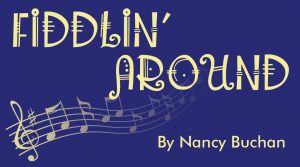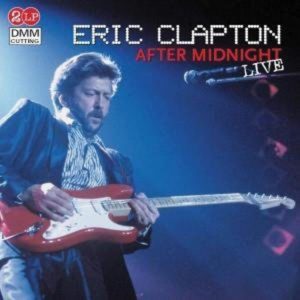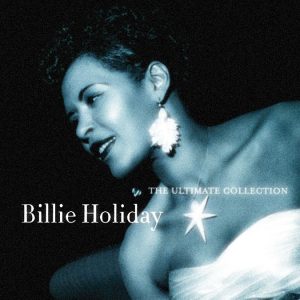Blues
 To the locals who love this place and live here all year long and to the travelers passing through, welcome to a new year in this beautiful and inspiring little part of the planet! Personally I’m glad to be done with 2016, ‘cause I think it sucked, and I found myself singing or playing the Blues way too often. It’s easy to fall into a rain-induced funk, and between the normal messy rainy season stuff and Otto, there was plenty of damaging and isolating weather here. And earthquakes. And volcanos erupting. The political crap of 2016 was alienating, divisive and chock full of lies, and the resulting anger and frustration throughout the planet over our problems was and is scary. We also lost a lot of great musicians last year and we will miss their emotional and spiritual guidance. I guess we need to snap out of our funk and quit drowning ourselves in the Blues…
To the locals who love this place and live here all year long and to the travelers passing through, welcome to a new year in this beautiful and inspiring little part of the planet! Personally I’m glad to be done with 2016, ‘cause I think it sucked, and I found myself singing or playing the Blues way too often. It’s easy to fall into a rain-induced funk, and between the normal messy rainy season stuff and Otto, there was plenty of damaging and isolating weather here. And earthquakes. And volcanos erupting. The political crap of 2016 was alienating, divisive and chock full of lies, and the resulting anger and frustration throughout the planet over our problems was and is scary. We also lost a lot of great musicians last year and we will miss their emotional and spiritual guidance. I guess we need to snap out of our funk and quit drowning ourselves in the Blues…
 It’s optimistic and maybe a bit stupid to try to explain music, especially the Blues. You listen to music—you feel music—you let music wash over you—you invite music to explain your most personal emotions. You can choose music that eases your isolation and uplifts you, or you can choose to listen to music that mires you down further. The attempt to explain how music works, especially the Blues, has produced kzillions of books, debates, documentation, scholastic analysis, movies, bullshit, and its own self-perpetrating clueless little industry. Because basically all music, and especially the Blues, just works or it doesn’t. Lots of factors influence that incredibly personal experience, but it all boils down to whether or not the music speaks to a person deep inside. It can be about hopelessness and fear, or sometimes merely the sadness of a crummy day when it just won’t stop raining…
It’s optimistic and maybe a bit stupid to try to explain music, especially the Blues. You listen to music—you feel music—you let music wash over you—you invite music to explain your most personal emotions. You can choose music that eases your isolation and uplifts you, or you can choose to listen to music that mires you down further. The attempt to explain how music works, especially the Blues, has produced kzillions of books, debates, documentation, scholastic analysis, movies, bullshit, and its own self-perpetrating clueless little industry. Because basically all music, and especially the Blues, just works or it doesn’t. Lots of factors influence that incredibly personal experience, but it all boils down to whether or not the music speaks to a person deep inside. It can be about hopelessness and fear, or sometimes merely the sadness of a crummy day when it just won’t stop raining…
In America, the Blues was the oral history of the imported African people, born out of their struggles with the white man, the unfamiliar land, the terrible brokenness of their families and their history. It probably started with the field workers call and response singing and rhythmic communication. That was a way to keep their stories alive and to connect them with each other in a way that the overseers couldn’t mess with. Nowadays there are many different versions of the Blues, from the citified slick sounds of someone like Robert Cray or Eric Clapton to the bare bones melancholy of someone like Billie Holiday or Muddy Waters. There is no one definition musically, but in the Blues typically a major scale is altered by flatting (taking a note half a tone down in pitch) the 3rd, 5th or 7th note of a scale. The rhythm can be anything, but the most common would be 4/4 time, where there are four beats to each measure. The structural pattern is often described as an 8 bar, or 10 bar, or the most popular, 12 bar Blues. That is the amount of measures that a song winds around the chords before repeating itself. Incidentally, slaves called the malevolent spirits that brought on sickness or sadness Blue Devils, hence the name for this style of music.
 What seems like a simple fact—that less is more—is an absolute truth when it comes to the Blues. What you don’t play is usually way more important than what you do play. The pauses, the hesitations and the bare vulnerability of silence is more powerful than any hot-shot flurry of notes or perfect technique or skill. Most musicians claim to understand and embrace this approach, but egos and sometimes too much technical ability or too much rum often sabotages our faithfulness to this simple concept. I remember my first musical forays into improvisation and non-classical music was to play along with Blues recordings—John Mayall and other British Blues artists who played in what seemed to me an easy to follow and predictable format. Yeah, I thought I could play the Blues, but it took decades before I really learned about and appreciated the authenticity and soulfulness behind my musical choices.
What seems like a simple fact—that less is more—is an absolute truth when it comes to the Blues. What you don’t play is usually way more important than what you do play. The pauses, the hesitations and the bare vulnerability of silence is more powerful than any hot-shot flurry of notes or perfect technique or skill. Most musicians claim to understand and embrace this approach, but egos and sometimes too much technical ability or too much rum often sabotages our faithfulness to this simple concept. I remember my first musical forays into improvisation and non-classical music was to play along with Blues recordings—John Mayall and other British Blues artists who played in what seemed to me an easy to follow and predictable format. Yeah, I thought I could play the Blues, but it took decades before I really learned about and appreciated the authenticity and soulfulness behind my musical choices.
There are quite a few Blues players down here in our little corner of the planet, like Ben Orton, Robbie Clark and even country singer Ralph Simms—hey, country music is part of the Blues family! There are some excellent Blues bands and artists who are based out of San Jose, so check them out when you are in the big city, or go up there to attend a Blues Festival! The Blues is a truly universal style of music—whether playing it or experiencing it. Doesn’t matter where you are from, what you look like or your skill level, sometimes we all get the Blues! I know guys that have turned cigar boxes into instruments to play the Blues on. Several years ago I took a big ‘ole slab of purple heartwood (called nascereno here) back to New Orleans and gave it to John Mooney, a fairly famous and well-respected Blues guitarist and singer. He took that heavy, dense tropical wood and crafted it into a guitar, which he still plays today. He calls it his ‘Swampbox’, and swears that it has a soulfulness and sound unlike any other guitar he’s played.
Please get out and listen to live local music! There are quite a few new venues for music down here in Dominical, Uvita and points further south, so get out and support the clubs and events that help support the local musicians. We wait through the rainy times for the opportunity to play our music for the folks who live here and for those passing through, so get out there and dance like there is no tomorrow!
Surrender you whole being into a note, and gravity disappears…..with one chord, John Lee Hooker could tell you a story as deep as the ocean. Carlos Santana
The Blues is easy to play, but hard to feel. Jimi Hendrix
Anybody singing the Blues is in a deep pit yelling for help. Mahalia Jackson
Blues is a natural fact, is something that a fellow lives. If you don’t live it you don’t have it. Young people have forgotten to cry the Blues. Now they talk and get lawyers and things. Big Bill Broonzy
